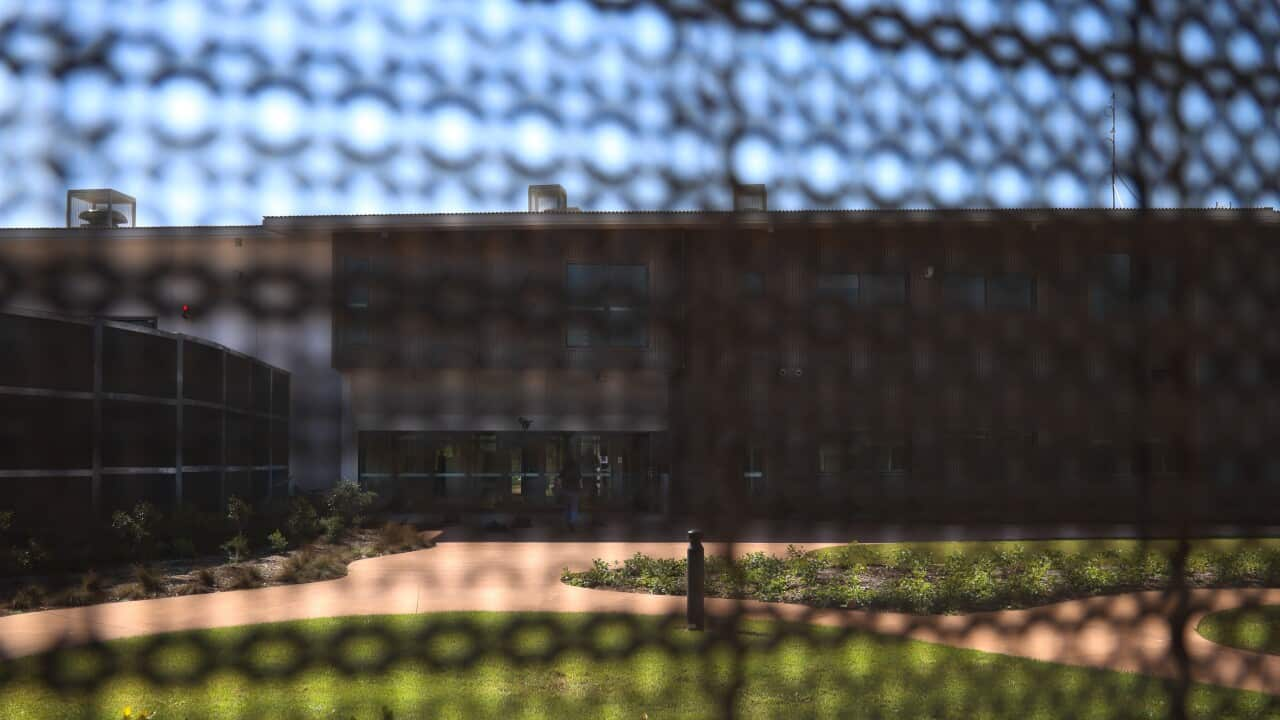Land councils, Indigenous business groups and the Aboriginal organisation that is responsible for protecting sacred sites in the Northern Territory all say changes to legislation risk real damage to important cultural heritage.
Last week, the Country Liberal Party Government led by Lia Finocchiaro passed amendments to the Sacred Sites Act, which it says will simplify and streamline the approval process for development, despite all Aboriginal parliamentarians voting against the bill.
The changes allow for the transfer of certificates issued by the Aboriginal Areas Protection Authority (AAPA) and include the introduction of an enforceable undertakings regime to remediate damages to sacred sites, rather than prosecution through a court process.
Labor MP for the seat of Gwoja, Chansey Paech, told NITV that the amendments had been passed without effective consultation with Traditional Owners, land councils, the wider community or the AAPA.
"This has absolutely been done by this government in order to get a very few select projects over the line here in the Northern Territory," he said.
"If the government was serious about reforming laws and making them contemporary and progressive, they would listen to Traditional Owners who wanted an increase in penalty points, who wanted further work around remediation done on sites but, again, Aboriginal people were shut out of this entire legislative process because the government came in with a mentality that they know what's best.
"You have an absolute issue when the five Aboriginal members of the Northern Territory Parliament all voted in opposition to this bill, because they know it is not in the best interests of Aboriginal Territorians."
NT Lands, Planning and Environment Minister Joshua Burgoyne claimed the cultural authority of custodians remains central.
"The amendments will provide much needed clarity and simpler, streamlined approval processes, while ensuring the protection of sacred sites remains paramount,” he said.

Aboriginal Areas Protection Authority chair Bobby Nunggumajbarr.
“The Sacred Sites Act is meant to protect Aboriginal sacred sites, but Aboriginal people and their representative organisations have not been consulted on these changes," chair Bobby Nunggumajbarr said.
“I am also disappointed that industry and the wider public have not been consulted.
"Traditional Owners and Custodians are really hurt - we don't know how this new bill is going to go and it's the risk for us."
Mr Nunggumajbarr said the authority wants laws that provide developers with a clear framework, while giving certainty to the community that sacred sites will be protected.
He said the NT government has missed an opportunity to modernise and strengthen the Act and had put the AAPA in a difficult position.
“The fact is, the board is worried that the amendments do not have Aboriginal consultation at their heart," Mr Nunggumajbarr said.
“These changes have been quickly drafted without a good understanding of the importance of sacred sites to the NT community, and they increase the potential for disputes and legal challenges."
The Central Land Council has also raised concerns about consultation on the amendments.
Following a meeting with Mr Burgoyne in March, land council chair Warren Williams said he had been met with "empty talk".
In correspondence to Mr Burgoyne on Wednesday, ahead of the amendments passing, Mr Williams told the minister he was missing a chance to make sacred sites legislation stronger for everyone by not speaking with the Territory's land councils.
"You have heard our delegates speak from the heart about how important sacred sites are to our people and the stress and suffering we experience when they are damaged or at risk of harm," the letter said.
Naomi Anstess, chief executive of the NT Indigenous Business Network, posted on social media that introducing changes to the Sacred Sites Act without consultation with Aboriginal Territorians make it clear that the Government is 'actively undermining' real economic opportunities for Aboriginal people.
"For this Government, ‘cutting red tape’ has become code for cutting Aboriginal voices – removing our rights to make decisions about our Country, our sacred sites, and our economic futures," she wrote.
"This is nothing short of a further dismantling of Aboriginal self-determination and undoes generations of work by our people to have our lands and waters protected and respected."
Ms Anstess said Aboriginal Territorians are not opposed to development.
"We are opposed to moves to disregard the global standards of Free Prior and Informed Consent, as well as moves to circumnavigate, or water down, Native Title and Aboriginal Land and Sea rights and legislation," she said.
"Traditional Owners and Land Councils have actively called on this NT Government for the opportunity to be involved in any reform to this space – but they have been shut out.
"This lays bare the stark and troubling reality of the current approach to Aboriginal affairs in the Territory: a deep imbalance between investments in punitive social control and meaningful measures that support genuine Aboriginal economic empowerment."








